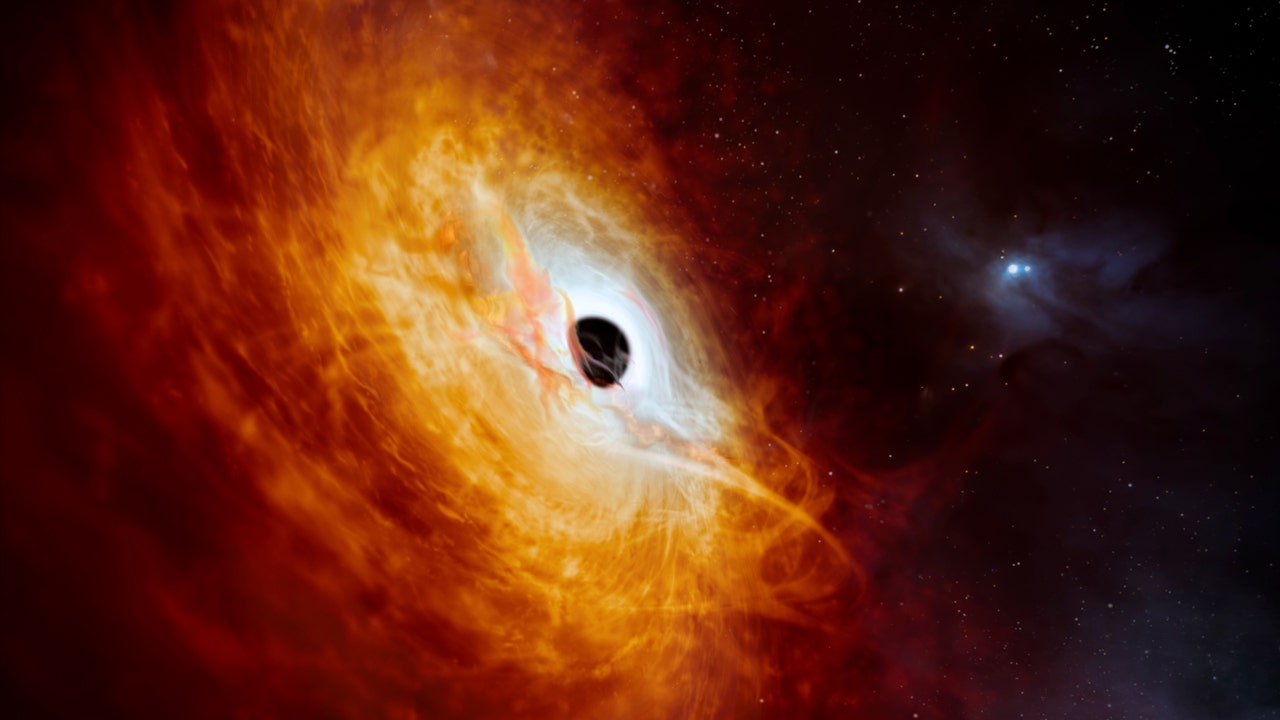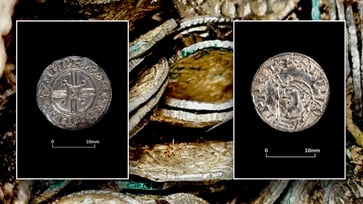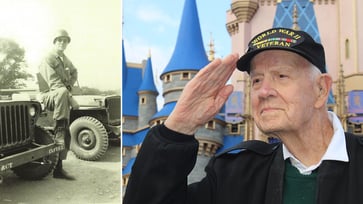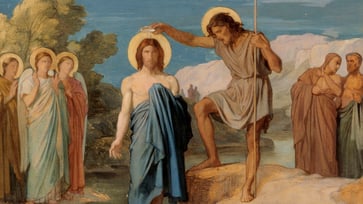Unraveling the enigma of the cosmos' oldest black hole
A black hole equivalent to 17 billion suns was discovered by astronomers, making it the brightest object in the universe.

According to NASA, a black hole is an astronomical object with a gravitational pull so intense that not even light can escape it.
Black holes are some of the strangest and most fascinating objects in space.
What is the oldest black hole?
Scientists unveiled a groundbreaking discovery on Wednesday Feb. 14, 2024.
The oldest known black hole, estimated to be 13 billion years old, was discovered and is actively consuming its host galaxy.
The record-breaking quasar shines 500 trillion times brighter than our sun.
An Australian-led team reported in Nature Astronomy that the black hole powering this distant quasar is more than 17 billion times more immense than our sun.

According to a statement from the University of Cambridge in the U.K., the existence of black holes so early in the universe challenges our assumptions about how they form and grow.
The University of Cambridge suggests that the newly discovered black hole may have been "born big" or capable of consuming matter at a rate five times greater than previously believed possible, according to astronomers.
Did the James Webb telescope find the oldest black hole?
The James Webb Space Telescope (JWST), which is NASA's premier observatory for the next decade, was used by astronomers to make the discovery.

The European Space Agency's spaceport in French Guiana launched the JWST on December 25, 2021.
According to NASA, this advanced telescope boasts a substantial 6.5-meter primary mirror, specifically designed for infrared observations.
What are some facts about the first black hole?
The discovery of Powehi, the first black hole, in April 2019, at the center of galaxy M87, 55 million light-years away, captivated the world.
The Event Horizon Telescope, in collaboration with the Center for Astrophysics, Harvard and the Smithsonian, unveiled a supermassive black hole weighing 6.5 billion times our sun's mass.
How long can a black hole live?
The lifespan of black holes is linked to their rate of Hawking radiation emission in theory.
Stephen Hawking, a physicist, theorized that black holes do not entirely absorb light, but instead emit minute amounts of thermal radiation, known as Hawking radiation.
According to Stephen Hawking's theoretical work, black holes can gradually lose mass and energy through a process known as quantum mechanical radiation, which is linked to the event horizon.

According to Hawking radiation, stellar-mass black holes, formed from the collapse of massive stars, are effectively stable and can exist for an astronomical amount of time because the timescale for significant Hawking radiation and mass loss is much longer than the current age of the universe.
According to the Center for Astrophysics, Harvard, and the Smithsonian, supermassive black holes, located at the centers of galaxies, are thought to have formed through various processes and are significantly more massive.
The stability of supermassive black holes is due to their longer timescales associated with Hawking radiation.
Has a black hole ever collapsed?
After a black hole forms, it does not shrink or disappear.
According to West Texas A&M University, black holes are stable objects, and their characteristics are determined by their mass, spin, and electric charge.
NASA explains that although black holes can interact with other celestial objects, such as through accretion or merging with other black holes, these processes do not involve a collapse, and therefore do not change the properties of the black hole.
Scientists gain valuable insights into gravity, spacetime, and star life cycles through the study of black holes, which also influence the formation of galaxies.
For more Lifestyle articles, visit planetchronicle.net/lifestyle.
Lifestyle
You might also like
- Post-inauguration, the surprising truths about DC travel costs.
- Melania and Donald Trump celebrate their 20th wedding anniversary: View the images.
- John Schneider, known for his role in 'Dukes of Hazzard,' remains steadfast in his belief: "God has a plan."
- Notre Dame football coach and Catholic convert is 'not shy about' the importance of faith.
- Trump confidant and unofficial spiritual advisor: "God is granting America another opportunity"



















